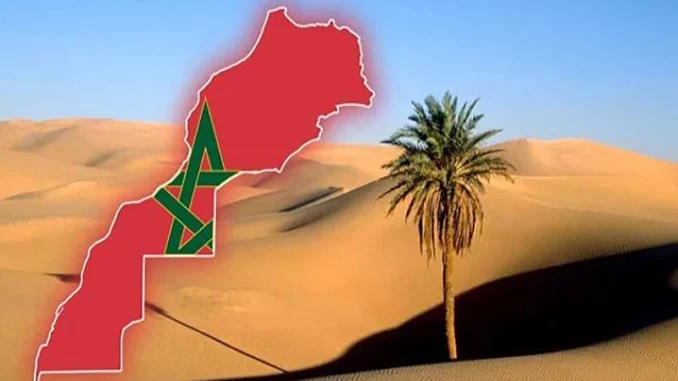
Several European countries have joined the international momentum and expressed support to Morocco’s Autonomy Plan as the “most serious & credible basis” for settling the regional conflict about the Moroccan Sahara.
The supportive stands were voiced by the Foreign Ministers of Moldova, Mihai Popșoi, Estonia, Margus Tsahkna, and Croatia, Gordan Grlić Radman, during meetings this week in their respective capitals with their Moroccan peer, Nasser Bourita, who is currently on a European tour.
The government of Moldova has expressed firm support for the autonomy plan offered by Morocco for the Sahara under its sovereignty, saying the Moroccan proposed plan is “the most serious and credible basis” for reaching a lasting and peaceful solution to the Sahara regional conflict.
In a joint statement issued Tuesday in Chișinău following talks with Bourita, the Maldovan FM also reiterated his country’s backing to the “UN-led political process” aimed at achieving a just, pragmatic and mutually acceptable solution to the Sahara issue.
The two ministers agreed on the “exclusive role of the UN in the political process” and reaffirmed their support for Security Council Resolution 2756 (2024), underlining the role and responsibility of the parties to the Sahara conflict in finding a realistic and enduring political solution based on consensus.
Both Morocco and Moldova expressed support to UN Sahara envoy and his efforts to advance the political process based on the UN Security Council resolutions and UN Charter.
Estonia also expressed strong support for the autonomy plan presented by Morocco in 2007 for a lasting settlement of the Sahara issue, saying the plan offers “a good, serious and credible basis” for reaching enduring peaceful solution to the Sahara conflict.
The announcement was made by Estonia’s Foreign Minister Margus Tsahkna at a press conference held Tuesday in Tallinn following his talks with Bourita.
This Wednesday, the Republic of Croatia joined the chorus, pointing out that the Morocco-proposed autonomy plan is a “good basis to reach a political solution” to the Sahara issue.
Croatia’s Foreign Minister, Gordan Grlić Radman, said, as came in a Joint Declaration adopted following a meeting in Zagreb with his Moroccan peer, that Croatia considers the autonomy plan as “a serious and credible effort” and “a solid basis for reaching a political and mutually acceptable solution in line with the relevant United Nations Security Council resolutions.”
The head of Croatian diplomacy recalled his country’s long-standing support for the UN-led process in order to reach a just, lasting and mutually acceptable political solution for all parties.
The two ministers agreed on the exclusivity of the UN in the political process and reaffirmed their support for Security Council resolution 2756 (2024), which underlined the role and responsibility of the parties in the search for a realistic, pragmatic and lasting agreement and a political solution based on compromise.
In their statements and joint declarations, all three European Foreign Ministers hailed the positive and constructive role of their countries and Morocco in maintaining stability, security and peace in their respective regions, and their commitment to the fundamental universal principles of the UN Charter, and the peaceful resolution of conflicts with full respect for the territorial integrity and sovereignty of States.
They reaffirmed their shared desire to deepen dialogue and bilateral cooperation on regional and international issues of common interest and major strategic challenges.
On the other hand, they commended the large-scale reforms undertaken by Morocco under the leadership of King Mohammed VI, his efforts to enhance the kingdom’s political, economic and social development, as reflected in the New Development Model and Advanced Regionalization project, and praised the stability of Morocco which has positioned it as a vital and credible partner for the European Union and for the region.
They likewise hailed the efforts made in favor of peace, stability, and economic development in Africa, stressing the importance of the initiatives launched, under the Sovereign’s impetus, in support of Africa, particularly the “African Atlantic States Process” Initiative, the “Royal Initiative to promote access to the Atlantic Ocean for Sahel countries” and the “African Atlantic Nigeria-Morocco gas pipeline project.”
